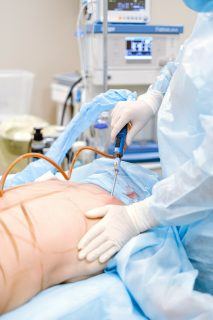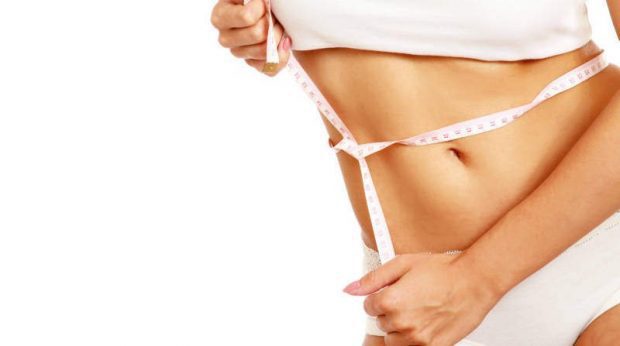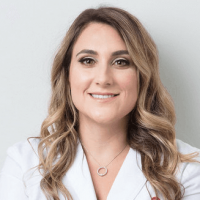Many people struggle with stubborn extra body fat daily. When a balanced diet and exercise fail to eliminate fat bulges, liposuction is frequently a viable choice for achieving the ideal body shape. In this editorial, Dr. Ashley Steinberg, a passionate female plastic surgeon from Houston, Texas, explains what you need to know.
Liposuction is a cosmetic procedure that reshapes the body by removing unwanted fats. The process targets several body regions, including the knees, thighs, belly, back, jowls, upper arm, neck, and chin.
While liposuction is a relatively safe operation that may assist in effectively eliminating stubborn fats from the body, it is still a surgical procedure that necessitates care and attention for a complete recovery. Knowing what to expect during and after surgery might make the whole process a lot more fluid for you.
What Is Liposuction?
According to the American Society of Plastic Surgeons, liposuction is the second most common cosmetic surgery procedure after breast augmentation.
Liposuction is also referred to as body contouring and lipoplasty. It is a surgical operation that removes fat from particular parts of the body using a suction method, such as the belly, hips, buttocks, thighs, arms, or neck.

Your doctor will execute this procedure by shaping and contouring the parts of your body where fat cells will be permanently removed.
Are you a suitable candidate?
Liposuction is rarely regarded as a weight-loss procedure or a substitute for weight-loss operations. If you’re obese, you’re more likely to lose weight with exercise and diet or bariatric operations like gastric bypass surgery than by liposuction.
Liposuction does not enhance cellulite thinning or other skin surface abnormalities. Similarly, liposuction does not eliminate stretch marks.
To be a suitable candidate for liposuction, you must be in perfectly good health and free of diseases that might complicate surgery, such as limited blood flow, diabetes, coronary artery disease, or a weakened immune system.
Types of Liposuction
There are only a few liposuction procedures available. But they all employ a small tube called a cannula that is attached to a vacuum to remove the fat from your body.
- Tumescent liposuction: This is the most popular procedure. A sterile solution is injected into the region where the fat is to be removed. It contains saline, which is salt water, as well as lidocaine and epinephrine. The solution makes suctioning the fat simpler, with less blood loss and discomfort.
- Ultrasound-assisted liposuction: (UAL) Ultrasound-assisted liposuction uses sound wave energy to tear the fat cell walls beneath your skin. This melts the fat and allows it to be suctioned out.
- SmartLipo: Also called laser-assisted liposuction, utilizes a laser to create a burst of energy to emulsify the fat.
- (PAL) Power-assisted liposuction: This method of liposuction employs a cannula that travels rapidly back and forth. This vibration enables the surgeon to extract stubborn fat more readily and quickly.
Liposuction Preparation
You should take numerous measures before having liposuction. These are some examples:
Consultation
Discuss your surgical expectations with your surgeon prior to the operation. Your surgeon will go over your medical history and inquire about any medical concerns you may have as well as any drugs, vitamins, or herbs you may be taking.
Before undergoing liposuction treatment, a medical evaluation is required. A medical examination will determine your body’s readiness for cosmetic surgery.
Your surgeon will advise you to stop taking certain drugs, such as NSAIDs or blood thinners, at least three weeks before surgery. You may also be required to have specific lab tests performed prior to your surgery.
To avoid difficulties, you should also cease smoking. Smoking should be avoided for at least 2 weeks before and after the operation, according to most surgeons.
Ask Questions
Your consultation is your opportunity to ask your doctor any queries you may have concerning your operation. A talk with your doctor will detail the procedures employed, the recuperation, and whether this is the best surgery for you.
It is also critical to establish your objectives and expectations for this operation.
Other precautions
If only a modest quantity of fat has to be removed, your treatment may be performed in an office environment. If a substantial quantity of fat is to be removed, or if additional operations are to be performed at the same time, the surgery may be performed in a hospital, for a comfortable overnight stay.
In any scenario, make arrangements for someone to transport you home and remain with you for the first night following the surgery.
What to Expect: Before the Procedure
Before your liposuction operation, the surgeon may outline the parts of your body that will be treated with circles and lines. Pictures may also be taken in order to compare before and after pictures.
The technique employed determines how your liposuction surgery is carried out. Your surgeon will choose the best approach for you depending on your treatment objectives, the region of your body to be treated, and if you have had previous liposuction treatments.
During the operation
Some liposuction treatments may only require regional or local anesthetic, which is an anesthetic that is restricted to a specific area of your body. Other operations may require general anesthesia, which can cause a brief period of unconsciousness. To assist you to stay quiet and relaxed, you may be given a sedative, often through an IV injection.
Throughout the surgery, the surgical team will check your blood pressure, heart rate, and blood oxygen level. Inform your surgeon if you are given a local anesthetic and have discomfort throughout the surgery. Medication and movement may need to be adjusted.
Depending on the quantity of fat removal, the process might take several hours. If you’ve been sedated, you’ll awaken in a recovery room. You’ll usually be at the clinic or hospital for at least a few hours so that medical experts can monitor your recuperation. If you are in a hospital, you may be asked to stay overnight to ensure that you are not dehydrated or in shock as a result of fluid loss.
After the Procedure
After the operation, you should expect some discomfort, swelling, and soreness, although, after 2 to 3 weeks, you will be comfortable. Your surgeon may prescribe pain relievers as well as antibiotics to limit the risk of infection.
The surgeon may keep your wounds open after treatment and insert temporary drains to facilitate fluid drainage. For a few weeks, you should normally wear tight compression clothing to assist minimize swelling.
You may need to wait a couple of days before going back to work and a few weeks before reverting to your typical activities, including exercise.
Expect slight contour irregularities during this time as the remaining fat settles into place.
Results
 You are unlikely to observe the desired effects immediately following your operation. If anything, you may feel as if you have gained weight or seem larger in the treated region for a brief period of time.
You are unlikely to observe the desired effects immediately following your operation. If anything, you may feel as if you have gained weight or seem larger in the treated region for a brief period of time.
Results might be seen when the edema subsides. The treated region should be less bulky by this point. Expect the treated region to become slimmer after a few months.
Skin naturally loses rigidity as we age, but liposuction effects are often long-lasting as long as you maintain your weight. If you gain weight after liposuction, the distribution of your fat may change. For instance, regardless of whatever regions were first treated, you may gain fat around your midsection.
Conclusion
Many people find liposuction to be life-changing. It is a fantastic method to increase your confidence and make you feel better about your look. Knowing what to expect before and during recovery will help you make a more educated decision to have liposuction and enjoy the path to a more contoured figure.
Who is the author?

Dr. Ashley Steinberg
Dr. Ashley Steinberg is a passionate female plastic surgeon in Houston, Texas. She loves to share free information related to body enhancements such as liposuction (for the chin or body) and breast augmentations and reductions. Dr. Ashley Steinberg has created hundreds of articles on her website offering incredible value for customers considering any plastic surgery operations.





![women [longevity live]](https://longevitylive.com/wp-content/uploads/2020/01/photo-of-women-walking-down-the-street-1116984-100x100.jpg)










